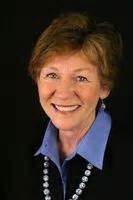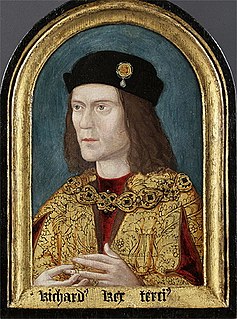A Quote by Elizabeth Gaskell
God has made us so that we must be mutually dependent. We may ignore our own dependence, or refuse to acknowledge that others depend upon us in more respects than the payment of weekly wages; but the thing must be, nevertheless. Neither you nor any other master can help yourselves. The most proudly independent man depends on those around him for their insensible influence on his character - his life.
Related Quotes
The world will not help, the people must help themselves. Its own strength is the source of life. That strength the Almighty has given us to use; that in it and through it, we may wage the battle of our life The others in the past years have not had the blessing of the Almighty - of Him who in the last resort, whatever man may do, holds in His hands the final decision. Lord God, let us never hesitate or play the coward.
Our work is not to save souls, but to disciple them. Salvation and sanctification are the work of God's sovereign grace, and our work as His disciples is to disciple others' lives until they are totally yielded to God. One life totally devoted to God is of more value to Him than one hundred lives which have been simply awakened by His Spirit. As workers for God, we must reproduce our own kind spiritually, and those lives will be God's testimony to us as His workers. God brings us up to a standard of life through His grace, and we are responsible for reproducing that same standard in others.
Why is fear part of earth life? Perhaps our Heavenly Father’s greatest hope is that through our fears we may choose to turn to Him. The uncertainties of earth life can help to remind each of us that we are dependent on Him. But that reminder is not automatic. It involves our agency. We must choose to take our fears to Him, choose to trust Him, and choose to allow Him to direct us. We must make these choices when what we feel most inclined to do is to rely more and more on our own frantic and often distorted thinking.
Man—every man—is an end in himself, not a means to the ends of others; he must live for his own sake, neither sacrificing himself to others nor sacrificing others to himself; he must work for his rational self-interest, with the achievement of his own happiness as the highest moral purpose of his life.
Nothing can separate you from His love, absolutely nothing, neither death nor life, nor angels, nor principalities, nor powers, nor things present, nor things to come, nor height, nor depth, nor any other creature... We do not need to beg Him to bless us, He simply cannot help it. Therefore God is enough! God is enough for time, God is enough for eternity. God is enough!
Man depends on God for all things: God depends on man for one. Without man's love God does not exist as God, only as creator, and love is the one thing no one, not even God himself, can command. It is a free gift or it is nothing. And it is most itself, most free, when it is offered in spite of suffering, of injustice, and of death . . . The justification of the injustice of the universe is not our blind acceptance of God's inexplicable will, nor our trust in God's love, his dark and incomprehensible love, for us, but our human love, notwithstanding anything, for him.
Our character is composed of our ideas and our feelings: and, since it has been proved that we give ourselves neither feelings nor ideas, our character does not depend on us. If it did depend on us, there is nobody who would not be perfect. If one does not reflect, one thinks oneself master of everything; but when one does reflect, one realizes that one is master of nothing
It is not in our life that God's help and presence must still be proved, but rather God's presence and help have been demonstrated for us in the life of Jesus Christ. It is in fact more important for us to know what God did to Israel, to his Son Jesus Christ, than to seek what God intends for us today.
A penniless man who has no ties to bind him is master of himself at any rate, but a luckless wretch who is in love no longer belongs to himself, and may not take his own life. Love makes us almost sacred in our own eyes; it is the life of another that we revere within us; then and so begins for us the cruelest trouble of all.
It's been written that the most sublime figure in American history was George Washington on his knees in the snow at Valley Forge. He personified a people who knew that it was not enough to depend on their own courage and goodness, that they must also seek help from God - their Father and preserver. Where did we begin to lose sight of that noble beginning, of our conviction that standards of right and wrong do exist and must be lived up to? Do we really think that we can have it both ways, that God will protect us in a time of crisis even as we turn away from him in our day-to-day life?
[Mr. Gifford] made it much his business to deliver the people of God from all those false and unsound rests that by nature we are prone to make and take to our souls. He pressed us to take special heed that we took not up any truth upon trust - as from this or that, or any other man or men - but to cry mightily to God that He would convince us of the reality thereof, and set us down therein by his own Spirit in the holy word.







































